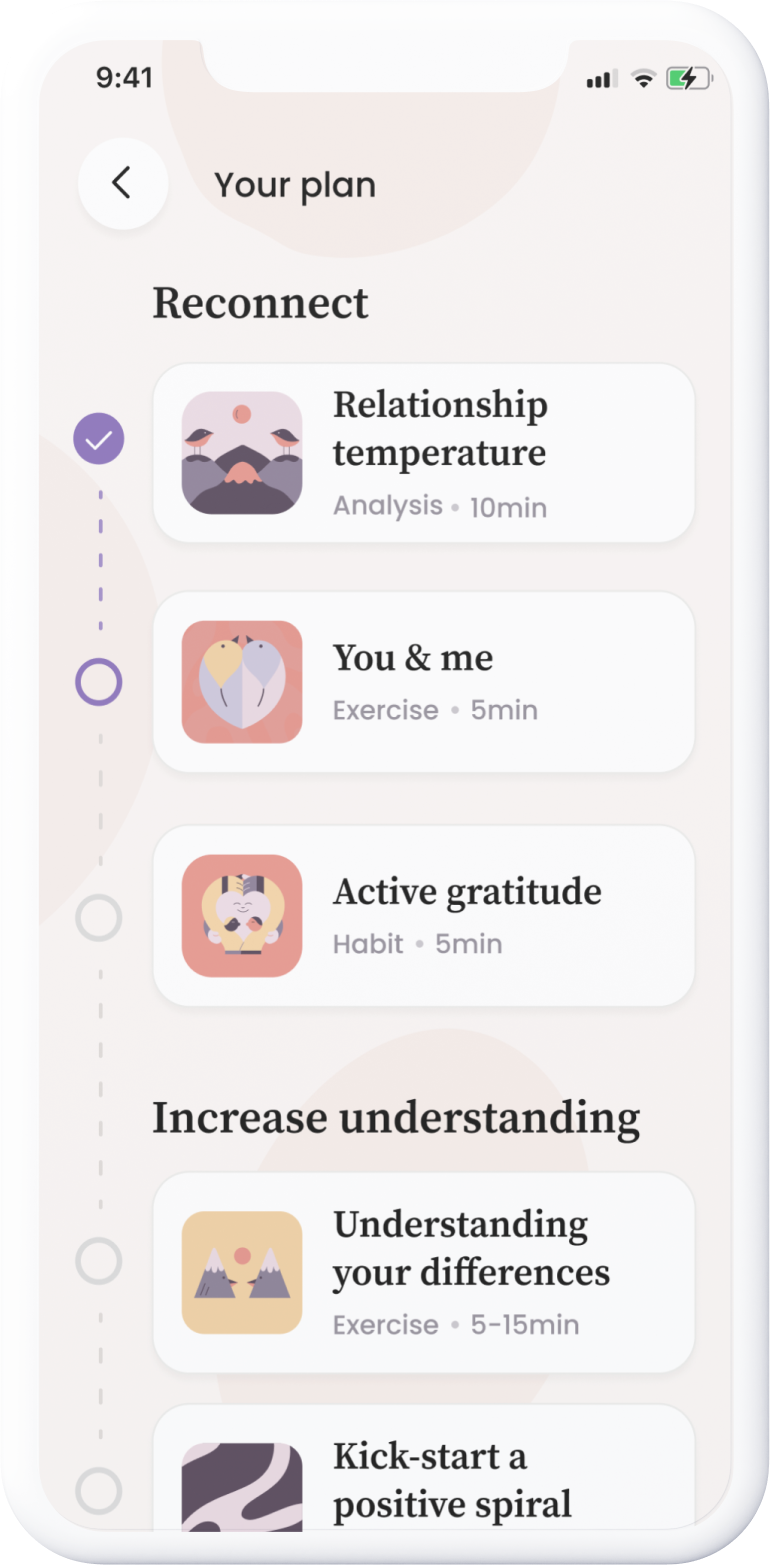
Do you experience PMS/PMDD? Does it affect your relationship? You're not alone! Over a third of women of childbearing age experience PMS (Premenstrual Syndrome). It can range from a few days to up to two weeks.
It's common to feel down, anxious, or irritable. Many become more easily irritated and sensitive to stress than usual. Feeling tired and having difficulty sleeping are other common symptoms. PMS is common, but for more severe symptoms, the term PMDD (Premenstrual Dysphoric Disorder) is used. In this case, the psychological symptoms are often severe, and many describe feeling like they hardly recognize themselves.
Common descriptions about the symptoms of PMS/PMDD are that they become significantly worse after having children and/or in their mid-30s. It's easy to think that this is due to changes in the body associated with age or pregnancy. But is that really the whole story?
For many of us, our mid-30s coincide with the most intense period in our careers and lives. For those becoming parents, life changes further. The burden and overall stress levels increase, while the opportunities to adjust daily life according to one's own well-being decrease.
The same goes for a potential partner, who may no longer be as empathetic/relaxed/supportive. In your mid-30s, it's not (just) the PMS symptoms that worsen, but also our ability to take care of ourselves/our partner diminishes.
PMS affecting relationships
It would be strange if symptoms such as feeling down, irritable, and sensitive to stress didn't affect the relationship! This has also been confirmed in studies. Many experience, for example, that conflicts increase, and so does the intensity of conflicts.
As a partner, it can be difficult to understand in the moment why the reaction suddenly becomes so strong when it usually isn't. It may seem unreasonable or unfair. And it's not strange to react yourself, to become irritated or angry back. Especially with PMDD, the more severe form of PMS, it's common for the relationship to be significantly affected during the phase when the symptoms are most intense.
But the relationship also affects PMS!
Conflicts don’t arise out of nowhere. Studies show that premenstrual anger and irritation often correlate with ongoing conflicts or dissatisfaction in the relationship.
Often, the feelings are understandable and present on other days of the month as well, even if they don't manifest in the same way. It may be about things in the relationship that one struggles with or is bothered by, but which one usually overlooks or navigates around. Then comes PMS, and it's as if someone turned up the volume of emotions to the max.
Several studies have shown that the partner plays a significant role in either increasing or decreasing a woman's symptoms of PMS. If the partner reacts with anger or avoids the woman's feelings, her PMS will increase (more anger, irritation, and sadness). If the partner instead meets her with encouragement, understanding, and support, the symptoms decrease (less anger, irritation, and sadness). So, it's significant if you as a partner can find a way to accept the situation of PMS affecting the relationship and use helpful strategies.
Wanting to compensate can trip up the relationship
For many women with PMS and PMDD, the days afterward are not only followed by relief but also by guilt and shame. This can lead to an extra effort to be accommodating, understanding, and cheerful.
And if the understanding and cheerful partner doesn't bring up what she might actually need to talk about, the things that might be a bit uncomfortable or unnecessarily difficult at times. And she and her partner could actually have a very good and constructive conversation about it if one of them just brought it up at the right time...
4 Strategies for managing PMS/PMDD together
1. Acceptance
Think of the menstrual cycle as a year. During spring and summer, it's bright and warm, life is easy, and energy flows. Then comes autumn, and the days get shorter. It's time for rest, to reduce activity and snuggle indoors with a cup of hot chocolate and a blanket. It doesn't matter how much you wish it were sunny and warm. Or how you, as a partner, think it should be sunny and warm because it was in July.
No one can change their biological sensitivity to hormones with willpower or attitude. Many with PMS would give anything to not feel as they do at that moment, and to be able to behave differently. PMS is no one's fault! If you can consider it a shared challenge to manage and relate to in the relationship, it's a good start! Hanging out at the beach in November might not be so great after all, but cuddling indoors can be for sure.
2. Get your head around it
Map out the symptoms, it increases your preparedness. There are several good apps for this. Then mark upcoming days on the calendar, just like you would for other important things. This applies to both of you!
Many times, it's difficult to notice when the mood begins to change, so it's good if you as a partner also keep track. Being prepared and understanding the forces at play increases your ability to react in a helpful way.
3. Work with timing
Strive for flexibility in the planning during these days. Also, consider what you/your partner usually feel good doing. Also, consider what typically increases stress, especially during PMS.
Discuss in advance how you can best help each other handle difficult situations that may arise during PMS. Perhaps you can agree that certain topics can wait a few days? A shared list where you park the issue? This relies on both taking responsibility to then bring up the issue again. The one who may feel strong stress or frustration in the moment needs to feel secure that what triggered the feeling won't be forgotten.
One piece of advice is not to discuss important issues at that moment, or at least not to make any important decisions. Talking about the relationship or the future is often easier (and more enjoyable) on other days of the month.
4. Validate!
Perhaps most importantly – make it a habit to check in with each other. Ask how it's going, listen with curiosity, and validate! Show that you understand how your partner feels during PMS and that the feelings are understandable. (Even if the feelings aren't the same as what you would feel, they are understandable given the circumstances.)
What kind of validation does you/your partner need when you feel that PMS affects the relationship? Is it a warm hug, being listened to, being left alone, or being encouraged to meet a friend or take a walk? Talk about it in advance so that you/your partner know. It's not obvious that someone who radiates irritation is longing for a hug!








